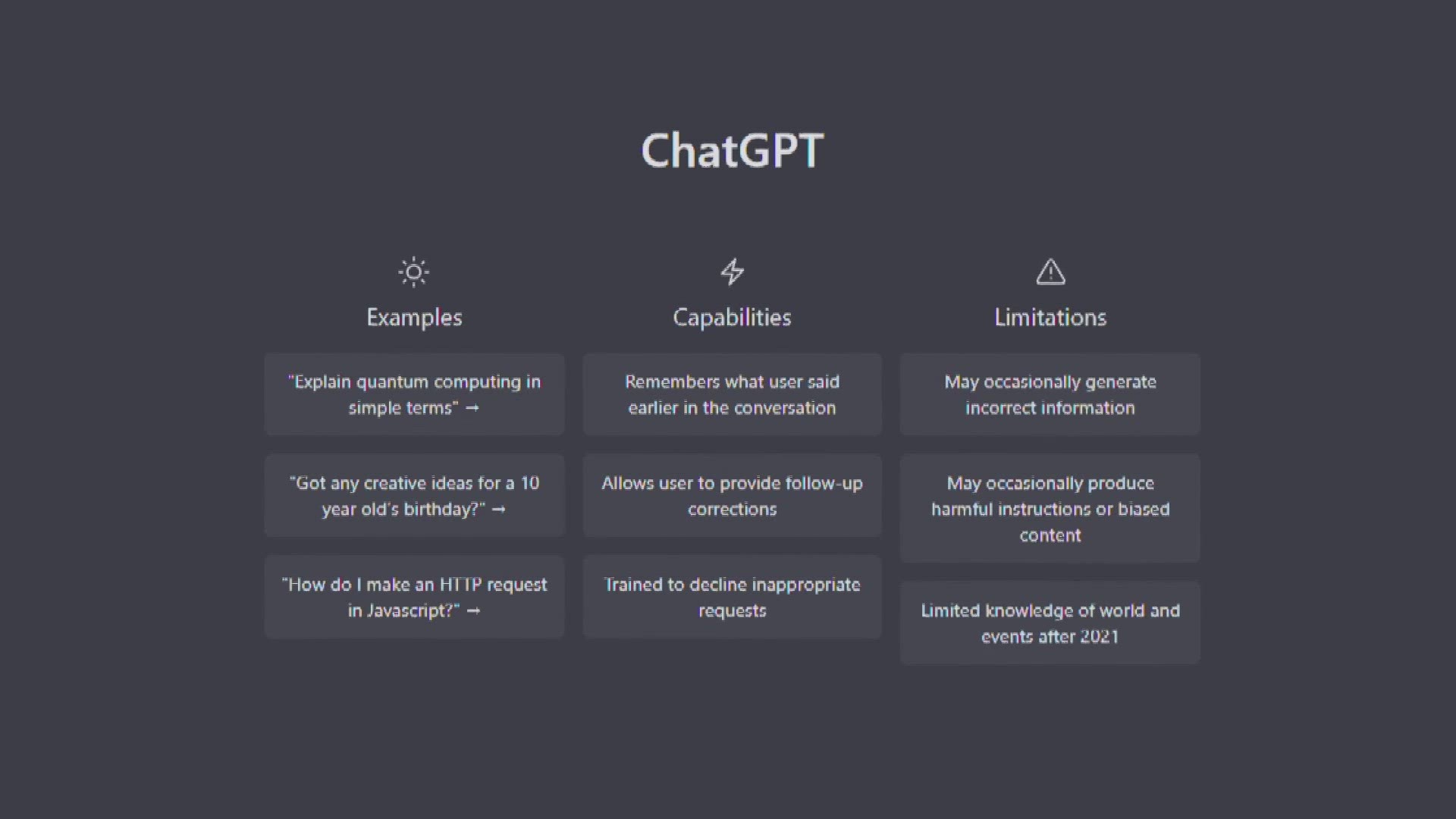CHATTANOOGA, Tenn. — "College campuses across the world have been incorporating artificial intelligence into their classrooms and campuses. One of the latest innovations in this field is ChatGPT, a large language model trained by OpenAI, based on the GPT-3.5 architecture. ChatGPT has been making waves in college campuses across the globe, thanks to its ability to provide personalized and comprehensive support to students and faculty alike.
At its core, ChatGPT is an AI-powered chatbot that can respond to a wide range of queries related to academics, student services, and campus life. It can answer questions related to course schedules, faculty office hours, campus events, and even offer personalized career advice. Its intuitive natural language processing capabilities and 24/7 availability make it an excellent resource for students and faculty."
The program creates realistic human-like responses to just about any prompt. If you need to see it to believe it, everything you read in this story so far was generated entirely by ChatGPT.
"It does learn, but it doesn't think," said Victoria Bryan, director of The University of Tennessee at Chattanooga's Walker Center for Teaching and Learning, which has been leading the university's response to the ground-breaking new software. "So, it's not critically thinking through the question that it's been given and trying to give you the best possible answer, it's trying to give you a convincing human-like tone."
The software was fed information from thousands of websites to be able to generate responses for almost any kind of prompt, such as essays, scripts, and answers to complicated questions.
But Bryan said just because it's believable, doesn't mean it's accurate.
"If a student were to put in, 'Write me an essay using three peer-reviewed sources that compares this to this,'" she said. "There's a good chance that those peer-reviewed sources would be completely fabricated."
We tried that example. We asked ChatGPT to write an essay, with three peer-reviewed sources, comparing The American Revolution to The French Revolution. Within a minute, the program wrote a 473-word essay on the topic using three different sources. We looked up those sources and none of them existed online.
"The key from a faculty member's concern is to be really clear about where their boundaries and expectations are around utilizing ChatGPT," Bryan said.
The university has had a handful of disciplinary issues related to the program, Bryan said. She is working with faculty to come up with ways to minimize the program's potential harm, concerns about plagiarism and cutting corners, and to use the program to the advantage of professors and students.
One way, Bryan said, students can use the program to their advantage is to use it as a jumping-off point to get ideas as opposed to letting the program do the work for them.
"Being able to guide students through ethical use of AI technology like this," Bryan said. "They can say 'I've been given this assignment, I've been having a hard time starting.'"

